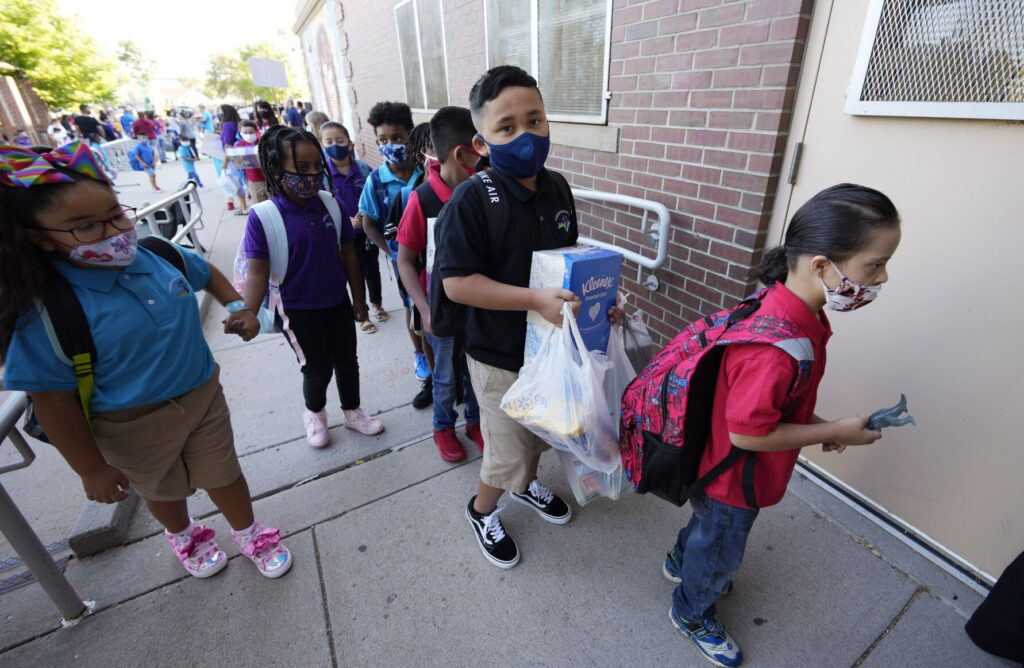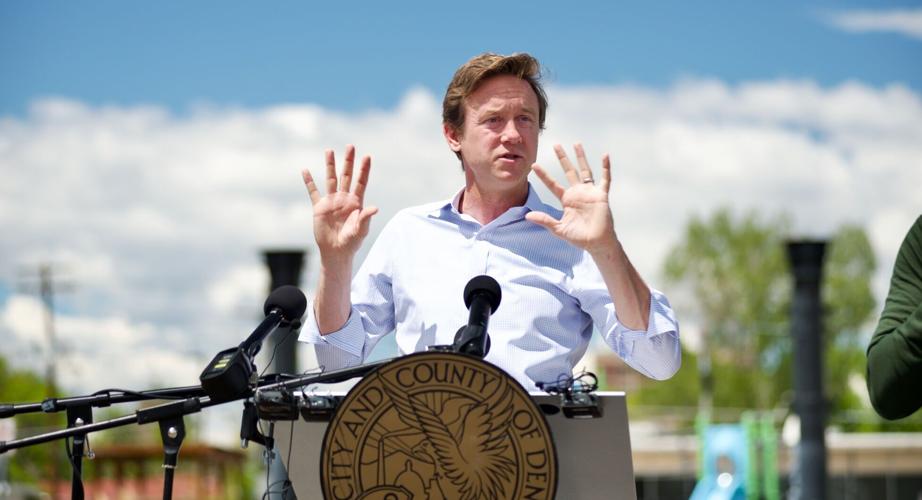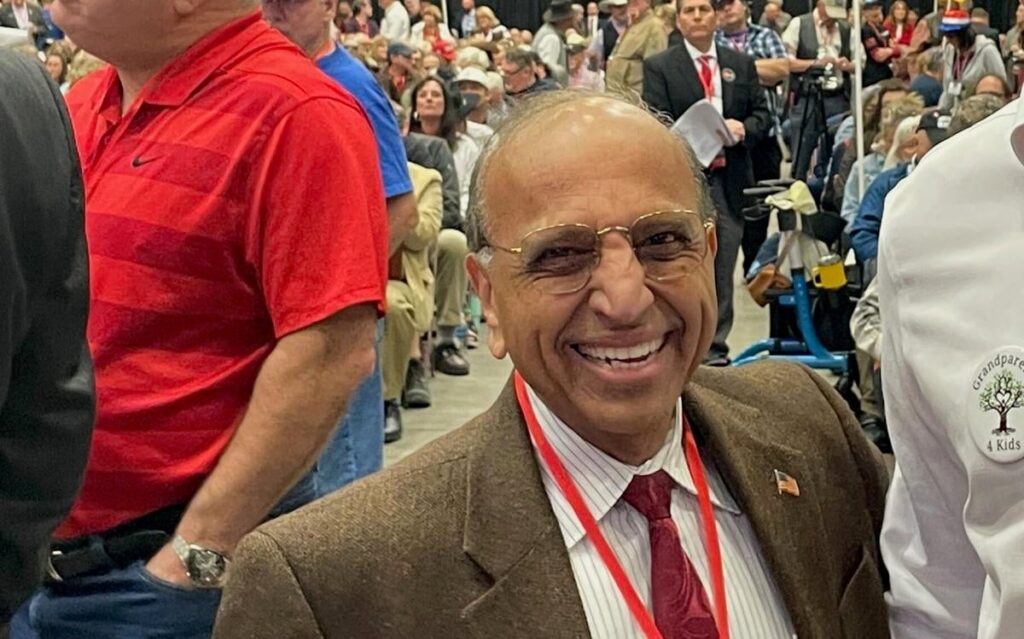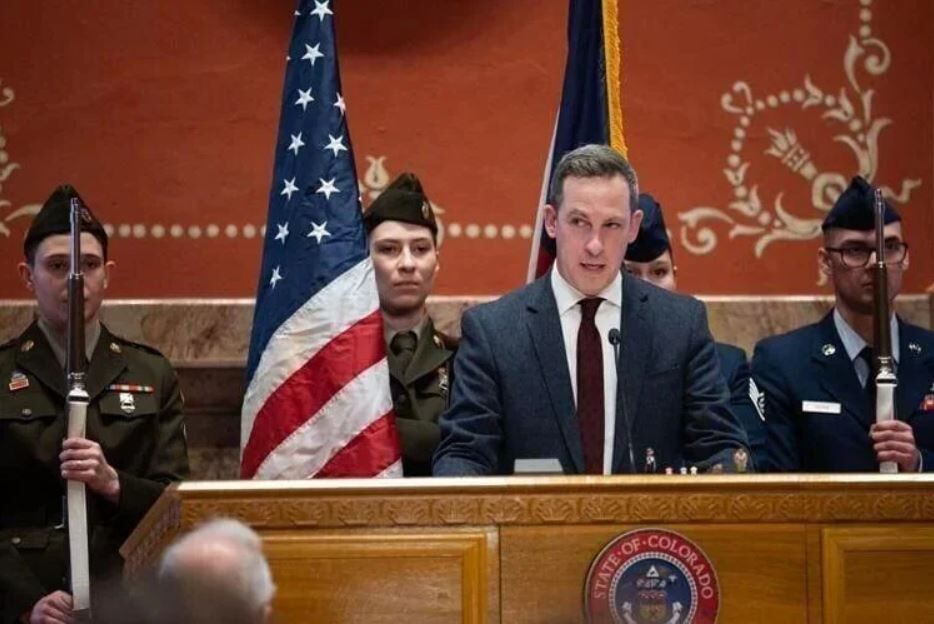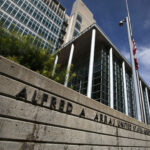Video reveals rare look into Denver Public Schools’ board’s inner conflict, collaboration

The Denver Public Schools board released a video recording of its March executive session, the subject of a lawsuit by a media coalition that includes The Denver Gazette and Colorado Politics. A trial judge sided with the coalition, concluding that DPS either “did engage in a substantial discussion of matters” not permitted under the state’s Open Meetings Law or adopted a proposed policy in the executive session in “contravention” of the statutes.
Huddled away from public view and faced with intense pressure to act, Denver Public Schools’ elected officials and the district superintendent challenged each other’s points in a five-hour meeting but ultimately ended up closely collaborating to produce a new policy in the wake of shootings that rocked schools in February and March.
The video of the March executive session – which DPS ultimately released following a judge’s order and after a media coalition that included The Denver Gazette and Colorado Politics filed for contempt because of delays – offered a rare behind-the-scenes look into the inner workings of the DPS board when the public isn’t watching.
The recording revealed particularly tense moments between Superintendent Alex Marrero and the DPS board and offered a glimpse into the relationship among the elected officials and between them and the man who runs Denver’s K-12 system.
DPS in secret crafted policy change to return armed cops to high schools, recording confirms
The recording showed a group that found a way to put aside their differences to come up with a plan, but not before they called each other out and complained about a lack of communication. Ultimately, they crafted a response with input from everybody, including their staffers, and later presented a united front at a news conference they strategized over.
A judge, who reviewed the recording, concluded that the closed-door discussion violated open meeting laws.
The tension was palpable throughout the five-hour discussion until the group came to a clear consensus on a plan of action.
“Your words put us in danger because you made the community look at us and act like we weren’t responsive to them,” Vice President Auon’tai Anderson told Marrero, who had unilaterally decided to bring back cops to campuses. “You’ve made yourself a hero. Everybody is applauding you. Everybody is supporting you right now. … (They’re saying) thank you for your courage, Superintendent Marrero, but (expletive) the rest of the seven board members.”
At one point, an exasperated Marrero pointedly asked the board members: “Who holds you accountable? No one has asked about our students. No one has asked about my staff.”
At another time, Marrero effectively said his professional life extends beyond his time at DPS.
Marrero was appointed superintendent in 2021. As superintendent, Marrero oversees a school system with a $1.3 billion dollar budget, about 90,000 students, 13,000 staffers, and more than 200 schools.
He is paid a base salary of $305,000, and eligible for performance pay of up to 12.5% of his base salary if he meets all goals.
The superintendent also told the board members that he expected them to back his decision to permit cops on campuses, and not fight it.
“The response I was expecting from the memo was we stand in solidarity with our superintendent as a leader of the district,” he said, referring to communication he had sent to the board outlining his action. “To be honest, that was the only response the board should have considered. Anything else got us into the place where we are now.”
The DPS board members – Scott Baldermann, President Xóchitl Gaytán, Carrie Olson, Michelle Quattlebaum, Charmaine Lindsay, Anderson, and Scott Esserman – and Marrero had sequestered themselves inside the district’s headquarters on March 23 to strategize over their response to the shootings and craft a policy that deviated from the board’s decision in 2020 to remove armed police officers from campuses.
Various staffers, including legal counsel Aaron Thompson, now Chief Information Officer Richard Charles and Public Relations Director Bill Good, joined the board at certain junctures, particularly toward the end.
The board also received perennial updates from staffers about real-time developments, such as when students marched to the state Capitol to press lawmakers for action.
The group managed the frustrations by taking a break or by ensuring that everybody can be heard. At one point, Anderson, who had disclosed that he had drafted a letter of resignation the night before but hadn’t signed it, left the room, presumably to collect himself. He came back shortly after.
He, along with Thompson, played a key role in the meeting.
Sometimes, the conversation turned snippy, with Gaytán telling some board members to not interrupt her, as she wasn’t done speaking yet.
At another point, Quattlebaum accused Gaytan and Marrero of a “failure of leadership.”
Quattlebaum recounted how she watched TV break the news that Marrero had decided to bring back SROs, without having the board taking a stance on the matter.
“I didn’t have an opportunity to speak to anyone,” she said. “And if I could be so bold to say it’s a failure of leadership. Our president was there. That was a a failure of leadership. Our superintendent was there. That was a failure of leadership.”
‘Not your role’
During the five-hour meeting, Anderson revealed that he had conversations with Denver Police Department Chief Ron Thomas, then-Mayor Michael Hancock and Public Safety Direrctor Armando Saldate at 6 a.m. at a church.
Which day they met – and over what, exactly, or whether it was before or after the shootings of the deans at East High – wasn’t immediately clear from the recording.
What’s clear is that Marrero was not happy with Anderson independently meeting with the city officials.
“That’s not your role,” Marrero told Anderson. “That’s my role. You shouldn’t have had the conversation. That’s on me. … I have an incredible team to do that work.”
DPS board decides to release executive session recording
Earlier in the meeting, when Marrero learned that a board member had drafted a resolution as a response to the crisis, he quipped, “First I’m hearing of the resolution. So, I’ve got concerns about that.”
Marrero emphasized that his mind is made up about bringing back cops to campuses, and indicated the board would not dissuade him otherwise.
“I understand that’s … maybe against what people feel. I understand likely it’s a violation (of policy),” he said, referring to the board’s 2020 decision to bar cops from campuses.
“Even if you all override me, which is going to be terminal, the mayor can enact an executive order, and he will, just like he did with the vaccination mandate,” Anderson said.
Hancock’s office had denied issuing such a threat or drafting an executive order to override the DPS board.
“So, then, our hands are tied,” Anderson replied. “The decision has already been made without the duly elected school board.”
Anderson also revealed that he actually changed his mind about bringing back cops to campuses after Luis Garcia, a student at East High, was shot just outside the school in February. Anderson had authored the 2020 policy that kicked out the cops from DPS.
“I asked for SROs to come back temporarily,” he said.
Much of the discussion centered on the technicality and legality of adopting a resolution versus enacting a new policy or asking Marrero to commit, during a public meeting, to a set of actions.
The staffers emphasized that DPS governs via “policy,” and that adopting a resolution for the superintendent to execute is “disfavored.” In addition, their own rules frown upon the resolution route and, apparently, that approach would also violate Marrero’s contract, they said.
The board members ultimately decided to adopt a memo, which, in their minds, evaded the legal ramifications of passing a resolution.
The meeting underscored the importance of remaining engaged and talking it out, despite palpable differences of opinion and visible frustrations with each other. Some board members, for example, hinted that they didn’t want SROs back in schools, even as others said they should be welcomed back.
Gaytan, at one point, encouraged the group to keep talking.
“I think we’re getting close. If we continue through this conversation, we are getting somewhere,” she said.


luige.delpuerto@gazette.com
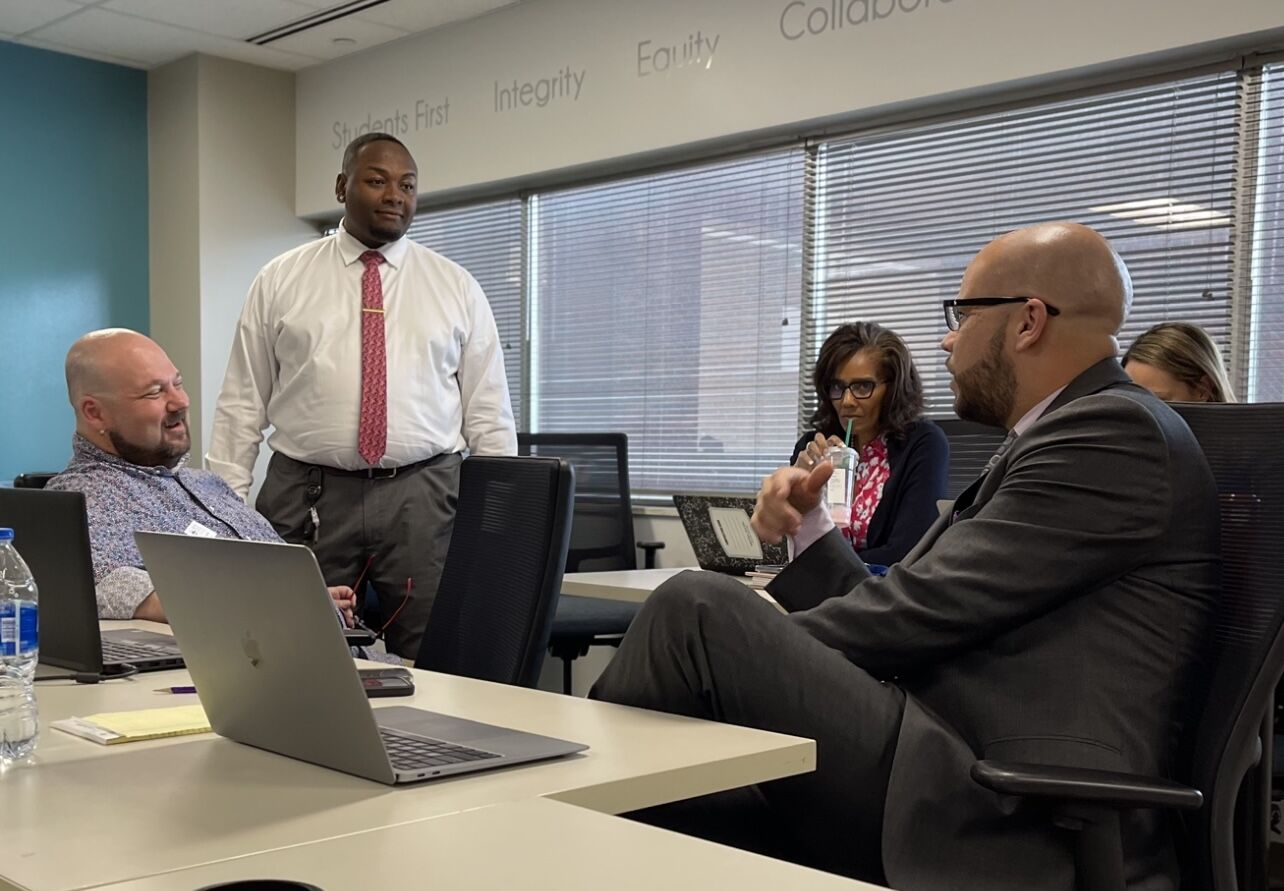
nico.brambila@denvergazette.com




